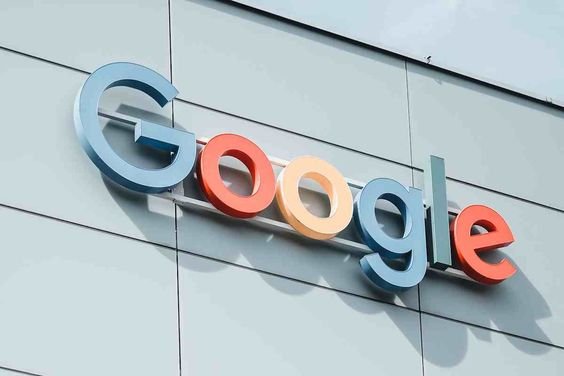
Facebook’s Data Scandals: A Deep Dive into User Privacy Issues
Introduction
Facebook, the world’s largest social media platform, has been at the center of numerous data privacy scandals over the past decade. These scandals have raised significant concerns about user privacy, data security, and the ethical responsibilities of tech giants in handling vast amounts of personal information. The controversies surrounding Facebook have not only affected its reputation but have also led to intense scrutiny from regulators, lawmakers, and the general public worldwide. This deep dive into Facebook’s data scandals aims to provide an in-depth understanding of the major privacy issues, their impact on users, and the broader implications for the digital landscape.
The Cambridge Analytica Scandal: A Turning Point
One of the most significant data privacy scandals that rocked Facebook was the Cambridge Analytica incident in 2018. This scandal became a turning point in the conversation about digital privacy and the ethical responsibilities of tech companies.
What Happened?
Cambridge Analytica, a political consulting firm, improperly accessed the data of approximately 87 million Facebook users without their consent. This data was used to build psychological profiles to influence voter behavior in political campaigns, including the 2016 U.S. Presidential Election and the Brexit referendum.
- How the Data Was Obtained: The data was collected through a quiz app called “This Is Your Digital Life,” created by researcher Aleksandr Kogan. Although only about 270,000 users directly interacted with the app, the app’s permissions allowed it to access not only the data of those users but also the data of their Facebook friends — a loophole in Facebook’s API that was exploited to gather a massive amount of data.
- Breach of Trust: The breach of user data and its use for political manipulation led to widespread outrage and accusations that Facebook had failed to protect its users’ privacy adequately. It was revealed that Facebook knew about the data misuse as early as 2015 but did not take sufficient action to prevent it or inform users until it became a public scandal in 2018.
The Fallout
The Cambridge Analytica scandal had far-reaching consequences:
- Regulatory Action: In 2019, Facebook agreed to a $5 billion settlement with the Federal Trade Commission (FTC) in the United States, marking the largest fine ever imposed for a data privacy violation. The settlement also required Facebook to implement new privacy protections and submit to regular audits of its data practices.
- Public Backlash: The scandal led to a significant public backlash against Facebook. The #DeleteFacebook movement gained traction, with many users deactivating their accounts in protest against the company’s handling of user data.
- Increased Scrutiny: The scandal heightened scrutiny from regulators and lawmakers worldwide. It sparked multiple investigations in the U.S., the U.K., and other countries, leading to broader discussions about the need for stricter data privacy laws and regulations.
Other Notable Data Privacy Scandals
While the Cambridge Analytica scandal was one of the most high-profile incidents, it was not the only data privacy issue that Facebook has faced. Several other scandals have highlighted the company’s ongoing struggles with data security and privacy.
1. The 2019 Data Breach
In September 2019, Facebook disclosed a data breach that exposed the personal information of more than 530 million users. The breach included sensitive information such as phone numbers, email addresses, and other personal details.
- Cause of the Breach: The breach was attributed to vulnerabilities in Facebook’s systems, which allowed hackers to exploit a feature in the platform’s “Contact Importer” tool. This vulnerability enabled hackers to scrape users’ personal data, which was later leaked online.
- Impact on Users: The leaked data posed significant risks to users, including identity theft, phishing attacks, and other forms of cybercrime. The breach underscored Facebook’s inadequate security measures and raised questions about its ability to protect user data.
- Response from Facebook: In response to the breach, Facebook enhanced its security features, including improving the privacy settings of user profiles and tightening access controls for third-party developers. However, critics argued that the company was still not doing enough to safeguard user information.
2. The 2018 Data Sharing Controversies
In 2018, it was revealed that Facebook had been sharing user data with other major tech companies, including Amazon, Microsoft, Netflix, and Spotify, without the explicit consent of users.
- Scope of Data Sharing: The data shared included users’ private messages, contact information, and other personal details. In some cases, third-party companies had access to user data even if users had disabled data sharing with third parties.
- Lack of Transparency: The data-sharing partnerships were not disclosed to users, leading to accusations that Facebook had violated user privacy. These partnerships were made under the guise of enhancing user experiences, but they also provided third-party companies with extensive access to user data for targeted advertising and other purposes.
- Facebook’s Defense: Facebook defended its actions by stating that the data-sharing agreements were within its terms of service and aimed at improving user experiences. However, this did little to quell the criticism, and the incident further eroded public trust in the company.
3. The Facial Recognition Controversy
Facebook has faced significant criticism over its use of facial recognition technology, which automatically tags users in photos without their explicit consent.
- Privacy Concerns: The use of facial recognition technology raised serious privacy concerns, particularly around biometric data, which is considered highly sensitive. Many users were unaware that their facial data was being collected and used to build extensive databases.
- Legal Actions: In 2020, Facebook agreed to pay $650 million to settle a class-action lawsuit in Illinois for violating the state’s Biometric Information Privacy Act (BIPA). The lawsuit claimed that Facebook had collected and stored biometric data without obtaining proper consent from users.
- Policy Changes: Following the settlement, Facebook announced changes to its facial recognition settings, making them opt-in rather than the default setting for all users. This move aimed to provide greater transparency and control over how users’ biometric data was being used.
Broader Implications of Facebook’s Data Privacy Scandals
The numerous data privacy scandals involving Facebook have had several broader implications, not just for the company itself but also for the tech industry, regulators, and users around the world.
1. Erosion of Trust
The repeated breaches and misuse of data have significantly eroded public trust in Facebook. Users have become increasingly wary of how their personal information is handled and shared by the platform. Trust is a crucial component for any tech company, and Facebook’s ability to maintain and grow its user base has been hampered by its damaged reputation.
2. Regulatory Repercussions
Facebook’s scandals have triggered a wave of regulatory scrutiny and actions:
- GDPR and Other Privacy Laws: The scandals have underscored the need for stringent data privacy laws. The General Data Protection Regulation (GDPR) in Europe has set new standards for data protection, and similar regulations are being considered in other parts of the world, including the United States. Facebook and other tech companies now face a more stringent regulatory environment with higher compliance costs and potential penalties.
- Antitrust Investigations: Facebook’s data practices have also led to antitrust investigations. Regulators have raised concerns that Facebook’s dominance in the social media market has allowed it to engage in anti-competitive behavior, including using its control over user data to stifle competition.
3. Changes in User Behavior
The data scandals have affected how users interact with Facebook and other social media platforms:
- Increased Caution: Users are becoming more cautious about what information they share online. There is a growing awareness of the value of personal data, and many users are taking steps to protect their privacy by using privacy settings more actively, reducing the amount of personal information they share, or even leaving platforms that do not prioritize user privacy.
- Adoption of Privacy Tools: There has been a rise in the adoption of privacy tools such as Virtual Private Networks (VPNs), encrypted messaging apps, and browser extensions that block trackers. Users are increasingly looking for ways to protect their online presence from unauthorized data collection and surveillance.
4. Impact on Facebook’s Business Model
The data privacy scandals have also impacted Facebook’s business model, which relies heavily on targeted advertising:
- Changes in Data Collection Practices: In response to the scandals, Facebook has been forced to change its data collection practices and provide more transparency about how user data is used. These changes may affect Facebook’s ability to offer highly targeted advertising, potentially impacting its ad revenue.
- Increased Costs: Compliance with new data privacy laws, such as the GDPR, has led to increased operational costs for Facebook. The company must invest in new technologies, processes, and personnel to ensure compliance with data protection regulations, which could affect its profitability.
5. The Need for Ethical Standards in Tech
Facebook’s data scandals have highlighted the need for a stronger ethical framework within the tech industry. As companies collect and manage vast amounts of personal data, there is an urgent need to establish ethical standards and best practices to protect user privacy and ensure that data is handled responsibly.
- Data Minimization and Purpose Limitation: Companies should adopt the principles of data minimization (collecting only the data that is necessary) and purpose limitation (using data only for the purpose for which it was collected). These principles can help prevent misuse and unauthorized sharing of data.
- User Consent and Control: There should be greater emphasis on obtaining informed consent from users and providing them with control over their data. This includes clear and transparent privacy policies, easy-to-use privacy settings, and the ability to delete or transfer data.
The Way Forward: Restoring Trust and Accountability
To restore trust and prevent future data scandals, Facebook and other tech companies must take proactive steps to improve data privacy and security:
1. Enhancing Data Security Measures
Tech companies must prioritize data security by implementing robust measures to protect user data from breaches and unauthorized access. This includes investing in advanced encryption, regular security audits, and employing best practices in data management.
2. Promoting Transparency and Accountability
Transparency is key to building trust with users. Companies should provide clear information about what data is being collected, how it is being used, and who it is being shared with. They should also be accountable for any misuse or breach of user data, with clear mechanisms for reporting and addressing privacy concerns.
3. Engaging with Regulators and Advocates
Tech companies should actively engage with regulators, privacy advocates, and other stakeholders to develop fair and effective data protection policies. Collaboration with these groups can help ensure that data privacy regulations are practical, enforceable, and aligned with the interests of both users and businesses.
4. Empowering Users with Privacy Controls
Users should have the ability to control their data and make informed choices about how it is used. This includes providing easy-to-use privacy settings, offering opt-in consent options for data sharing, and enabling users to access, modify, or delete their data at any time.
Conclusion
Facebook’s data scandals have served as a wake-up call for the tech industry, highlighting the urgent need for stronger data privacy practices, regulatory oversight, and ethical standards. The company’s repeated failures to protect user data have had far-reaching consequences, from eroding public trust to prompting regulatory crackdowns. Moving forward, tech companies must prioritize user privacy, engage in transparent practices, and uphold the highest standards of data security and ethics to ensure a safer digital environment for all users. The era of unregulated data collection and unchecked corporate power is rapidly coming to an end, and those who fail to adapt to this new reality risk facing significant consequences.
ALSO READ: How Daniel Ek Built Spotify into a Global Music Giant









